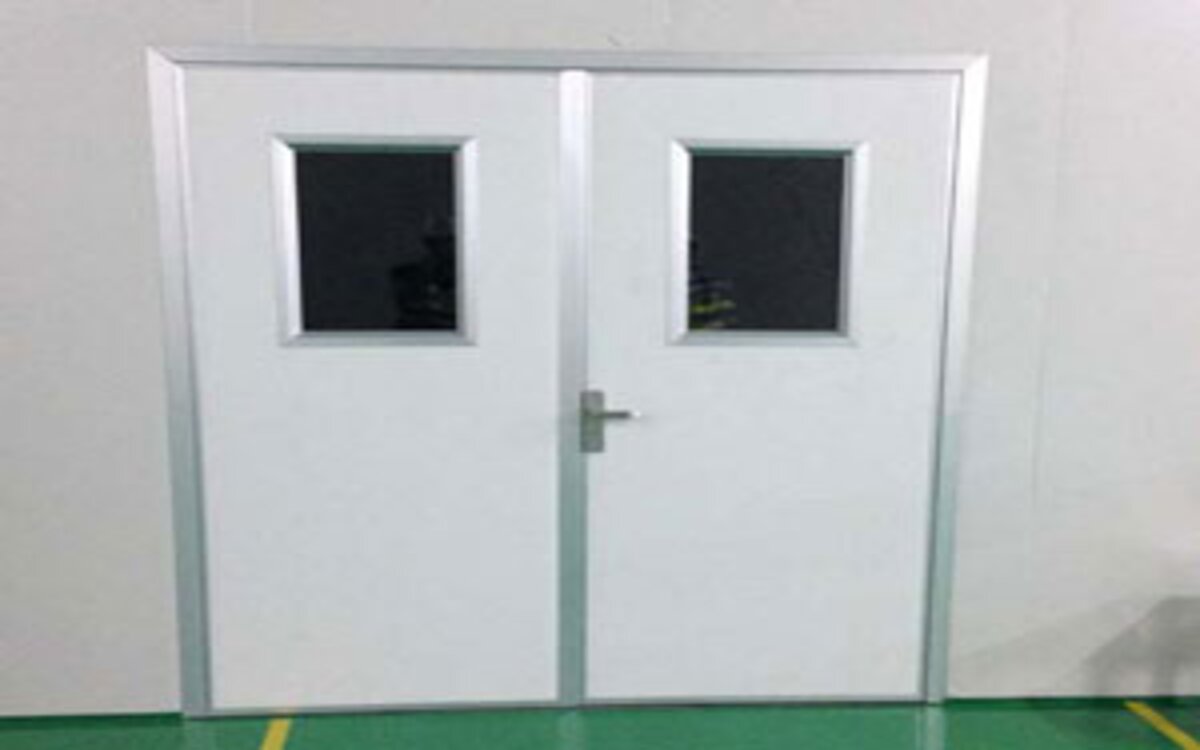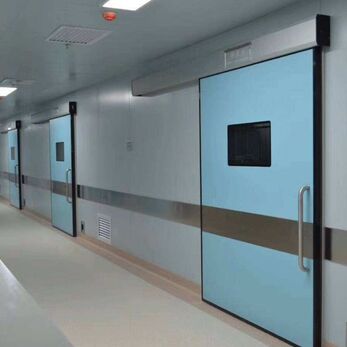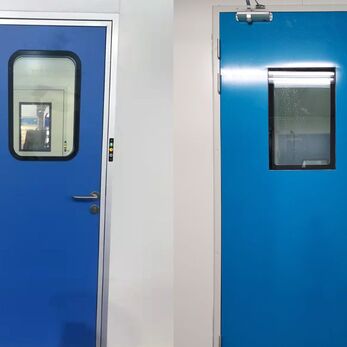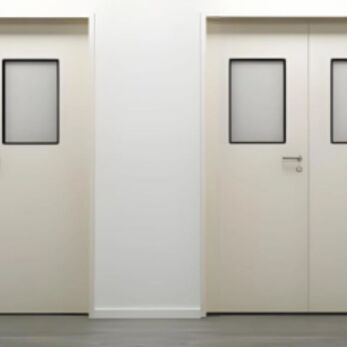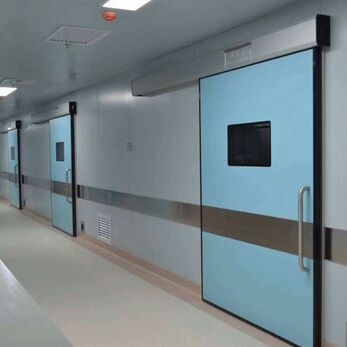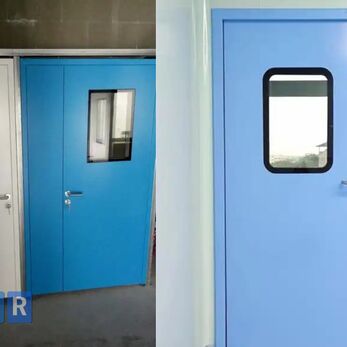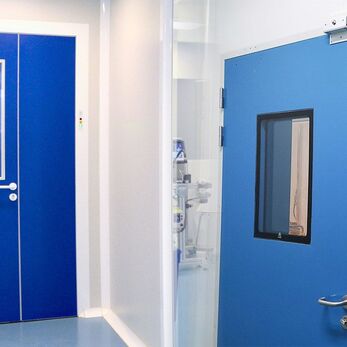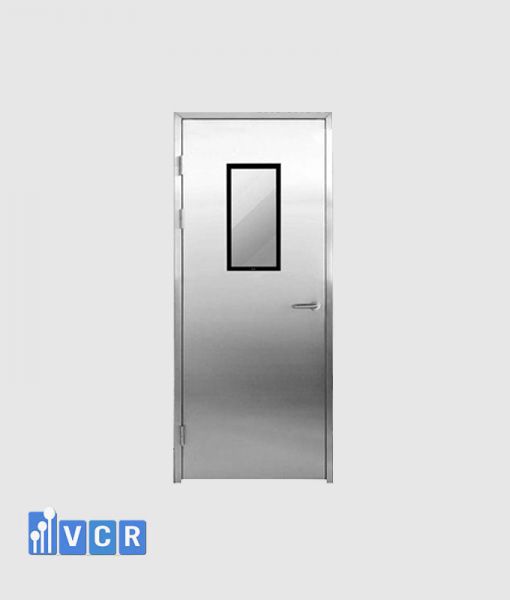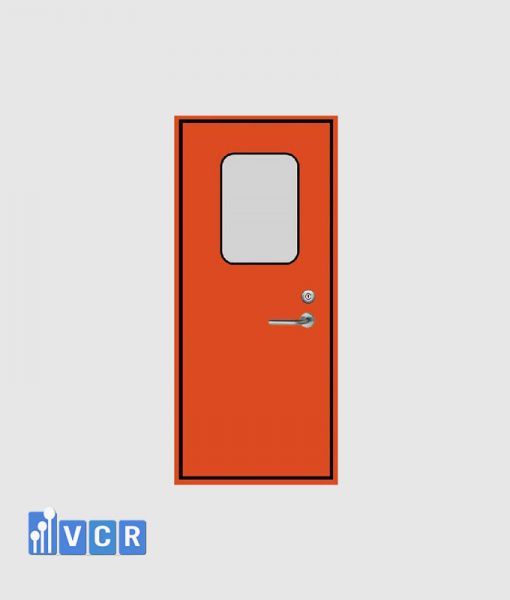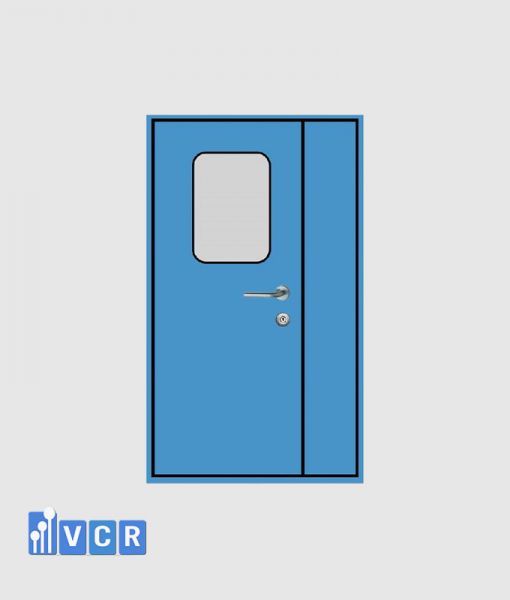In the food sector, controlling the production environment is critical. Moisture‑resistant, mold‑resistant cleanroom doors act as a “shield,” protecting against humidity, mold, and microorganisms. Choosing the right type of door helps factories comply with HACCP, GMP, ISO standards and prevents contamination risks.
- 1. Overview: The Role of Cleanroom Doors in the Food Industry
- 2. Criteria for Selecting Moisture‑Resistant, Mold‑Resistant Cleanroom Doors for Food Plants
- 3. Applications of Cleanroom Doors in Food Workshops
- 4. Reputable Providers of Cleanroom Doors for the Food Industry
- 5. Frequently Asked Questions (FAQ)
1. Overview: The Role of Cleanroom Doors in the Food Industry
In food processing, controlling the production environment is vital to ensure quality and safety. Factors such as humidity, microorganisms, and mold pose constant risks to finished products if not strictly controlled. That is why modern food factories adopt cleanroom models compliant with HACCP, ISO 22000 or GMP to minimize contamination risks.
One frequently overlooked yet critical element in a cleanroom system is the door. It is not only a spatial divider but also the first line of defense, preventing infiltration of humidity, dust, mold, and microorganisms from outside into the production area. Cleanroom doors specialized for the food industry are often designed with moisture resistance, mold resistance, airtight sealing, and easy-clean surfaces, helping maintain a stable, sterile production environment.
On the other hand, using ordinary doors that do not meet cleanroom requirements may lead to serious issues such as:
-
Cross contamination of microorganisms between production zones
-
Mold development from moisture accumulation in door gaps and hinges
-
Loss of pressure and temperature control across functional rooms
-
Increased costs for cleaning, maintenance, and product defect handling
Therefore, investing in the right moisture‑resistant, mold‑resistant cleanroom door from the start is essential to ensure long‑term operational efficiency and compliance with rigorous food safety standards.
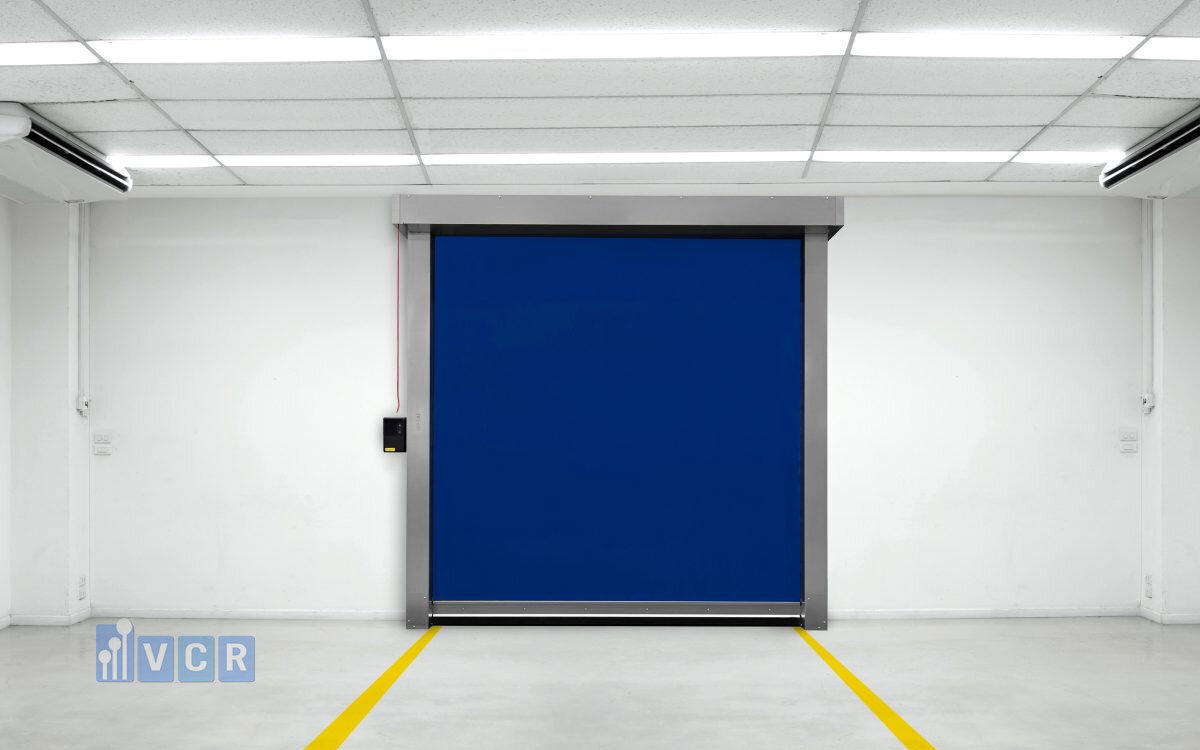
Read more: Latest price list of Clean room doors used in food factories
2. Criteria for Selecting Moisture‑Resistant, Mold‑Resistant Cleanroom Doors for Food Plants
Not every door is suitable for the strict hygiene and microbial control requirements in food processing. To ensure a clean, dry, mold‑free production environment, businesses should consider the following criteria:
Antibacterial, Non‑Hygroscopic Materials
The door’s structural materials determine its long‑term moisture resistance and mold prevention. Commonly recommended materials for food factories include:
-
Stainless Steel 304: corrosion‑resistant, easy to clean, chemical tolerant
-
FRP Composite: chemical resistance, strong moisture resistance, not prone to rotting
-
Panels with PU or EPS Core: with mold‑resistant coating, good thermal insulation, preventing moisture penetration
High Moisture Resistance & Airtight Sealing
For a cleanroom to function effectively, the door must ensure:
-
A quality gasket/seal system to minimize moisture penetration and microbial infiltration
-
Integrated waterproofing to prevent water accumulation at hinges or door grooves — areas prone to mold growth
-
Stable pressure control: helps maintain positive pressure differences between zones and reduces cross contamination risk
Ease of Cleaning & Maintenance
In food production, the ability to clean the door is non‑negotiable. Prioritize designs with:
-
Flat surfaces, no grooves, no dust traps
-
Resistance to cleaning agents, ethanol, chlorine, H₂O₂, etc.
-
Flexible opening mechanisms that allow inspection and cleaning of components (hinges, handles, locks)
Durability & Reliable Operation
Cleanroom doors are operated multiple times daily. Hence:
-
The structure must be robust and smoothly operable even under heavy use
-
Hinges, sliding rails, push bars should be made of wear‑resistant materials
-
Minimize occasional faults during operation to reduce maintenance costs
Adaptability to Specific Plant Designs
Each food processing line has unique requirements for size, function, and direction of door operation. Therefore:
-
Doors should offer optional vision panels, interlocking locks, automatic sensors
-
Custom designs per blueprint: single, double, sliding, rapid roll doors
-
Suitable for areas like raw material rooms, packing rooms, cold storage, or buffer rooms
Choosing the right door criteria helps food enterprises not only ensure hygienic safety but also reduce long‑term operating and maintenance costs.
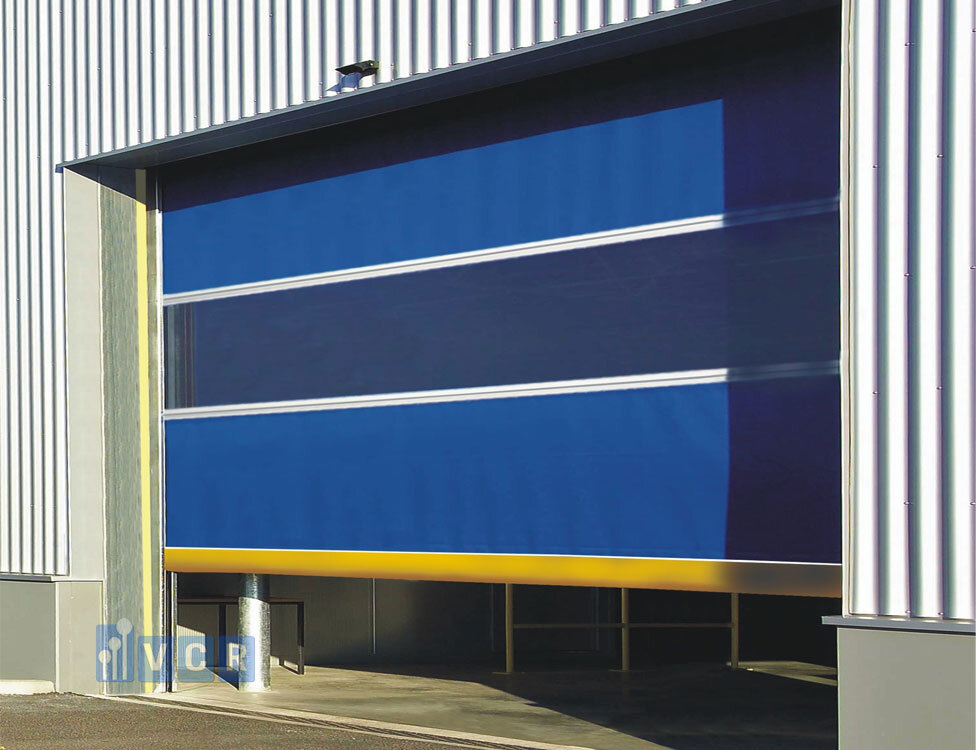
Read more: Why Steel Doors Shine in Cleanroom Environments
3. Applications of Cleanroom Doors in Food Workshops
In each area of a food factory, environmental conditions and hygiene demands differ. Selecting the right moisture-resistant cleanroom door for each sub‑zone is crucial for controlling humidity, preventing mold, and restricting microbial intrusion. Below is a recommended door type by zone:
| Zone | Recommended Door Type | Reason for Choice |
|---|---|---|
| Processing Area | Water‑resistant composite door | Often damp, direct contact with water and raw materials |
| Packaging Area | Stainless Steel 304 door | High hygiene requirement, easy to clean using chemicals, no dust retention |
| Cold Storage | PU core panel door | Prevents heat loss, resists condensation, maintains stable internal temperature |
| Raw Material Storage | Door with dual gasket sealing | Enhances barrier against insects, fine dust, mold, and environmental humidity |
Additional suggestions:
-
Tool‑washing zones: use composite waterproof doors with strong chemical resistance
-
Raw material waiting rooms: sliding doors with interlocks help strictly control traffic
-
Internal corridors: swing doors or rapid roller doors save time on opening/closing while maintaining pressure
Classifying and using the correct door type in each zone not only boosts operational efficiency but also helps satisfy stringent food safety certifications like HACCP, ISO 22000 or GMP. This is a critical part of contamination control across the entire food processing chain.
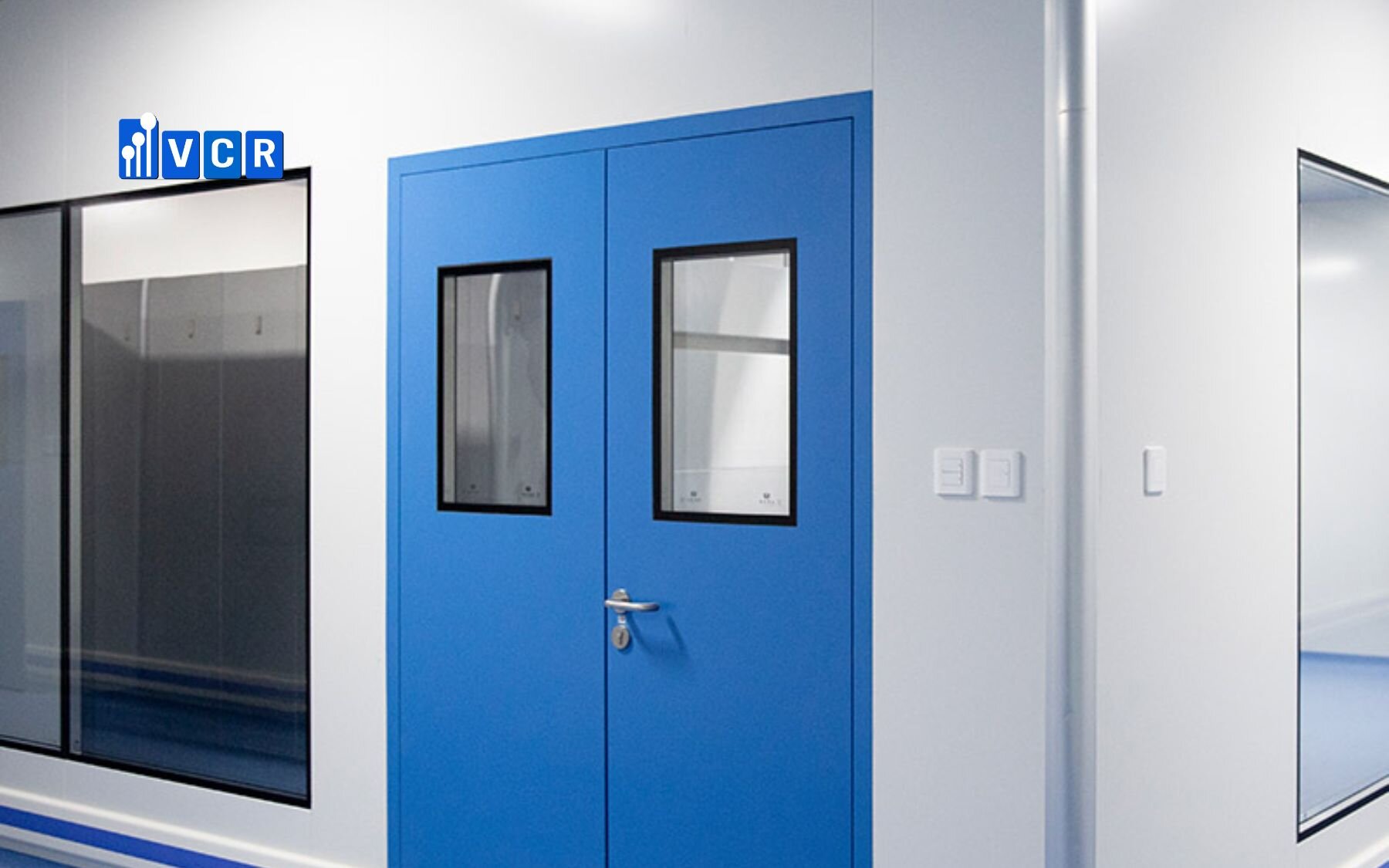
Read more: Choose the right Cleanroom Door with 5 factors
4. Reputable Providers of Cleanroom Doors for the Food Industry
Choosing a trustworthy cleanroom door provider not only affects equipment quality but also influences system stability and longevity of the production line. Among current suppliers, VCR – Cleanroom Equipment VCR stands out as a leading provider of moisture‑resistant, mold‑resistant specialized doors for the food industry.
VCR – Full Cleanroom Solutions
With over 10 years of experience implementing cleanrooms for major food, pharmaceutical, and cosmetic factories nationwide, VCR fully understands technical standards and actual workshop operational needs.
Wide Range of Specialized Door Options
-
Stainless Steel 304, FRP composite, PU/EPS core panel doors — all designed to resist mold, seal tightly, and be easy to clean
-
Options for single, double, sliding, rapid roll doors — suitable for zones like processing, packaging, cold storage
-
Features such as vision windows, magnetic locks, automatic sensors
Compliance with Food Industry Standards
-
Products designed and manufactured to GMP, HACCP, ISO 14644 standards
-
Suitable for certification by domestic and international food safety authorities
Consultation & On‑Site Installation Services
-
Surveying & measurement at the factory, advising appropriate door configuration per production flow
-
Providing detailed drawings and layout plans to ensure correct traffic flow and pressure balance
Clear Commitment Policies
-
Long‑term warranty, technical support throughout operation
-
Periodic maintenance, replacement of parts with genuine components
-
On‑time delivery to ensure no disruption to factory construction timelines
With strong technical capabilities and an experienced team, VCR confidently positions itself as a reliable partner in helping food businesses build closed cleanroom systems — controlling humidity and microorganisms efficiently right from the doors.
Read more: Supplier of clean room doors meeting GMP standards according to ISO 14644
5. Frequently Asked Questions (FAQ)
Can a cleanroom door completely prevent mold?
A: If the correct moisture‑resistant materials are used and regular cleaning is maintained, a cleanroom door can effectively inhibit mold growth and contribute to a safer production environment.
Do cleanroom doors in the food industry need certification?
A: It is advisable to select doors that meet standards such as GMP, HACCP, or ISO 14644 so as to align with existing food safety systems.
Can doors be custom made per zone dimensions and designs?
A: Yes. VCR offers design and manufacturing services to ensure doors fit exactly into each installation point, match traffic flow, and suit the factory’s conditions.
How to maintain cleanroom doors to preserve their effectiveness?
A: Clean them regularly with neutral detergents; avoid strong aggressive cleaners. Periodically (at least every 6 months), check gaskets, hinges, and handles to correct minor damage before it affects airtightness.
Contact:
Hotline: 090.123.9008
Email: [email protected]
Website: https://cuaphongsachvcr.com/
Dat VCR




